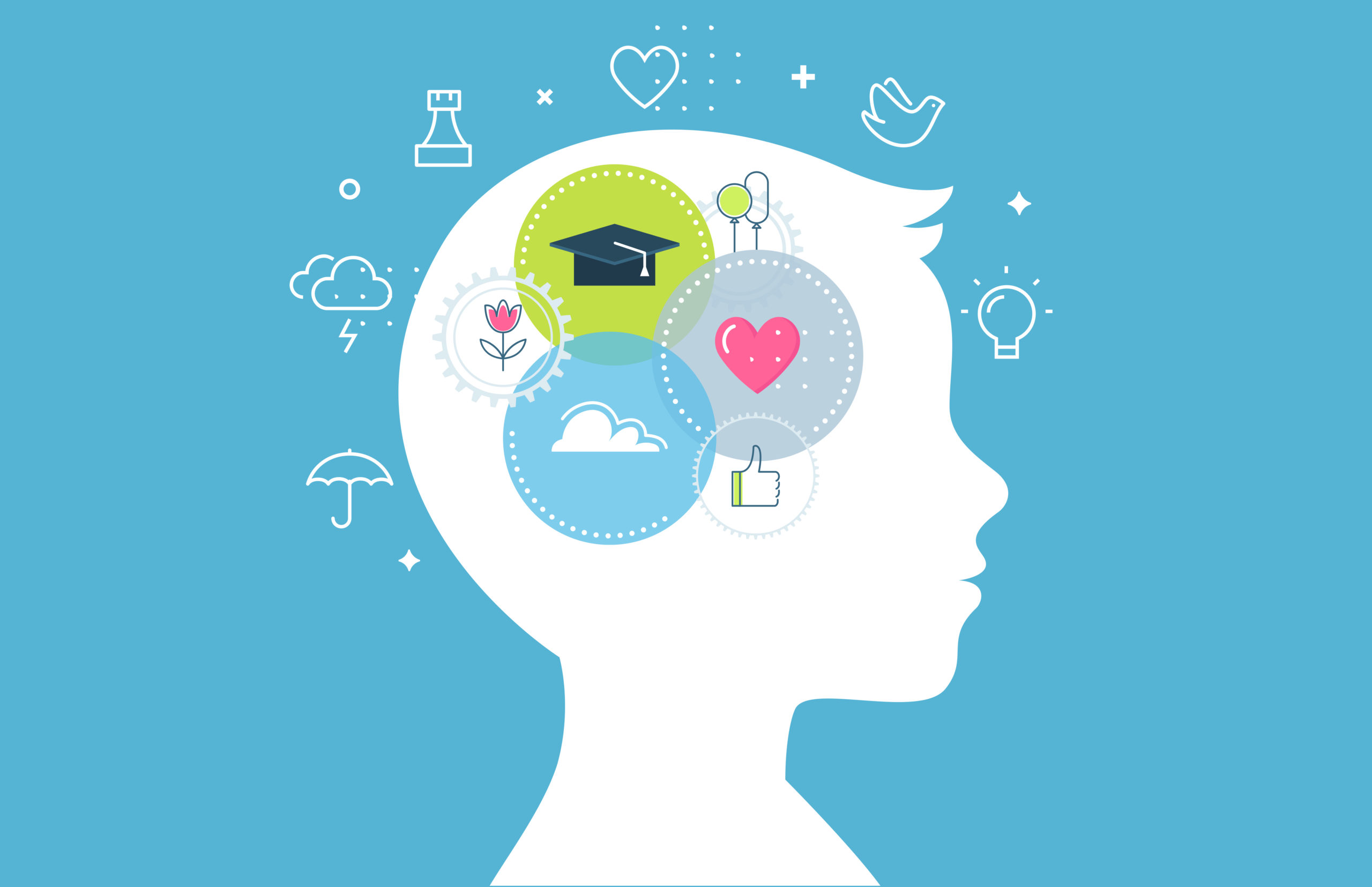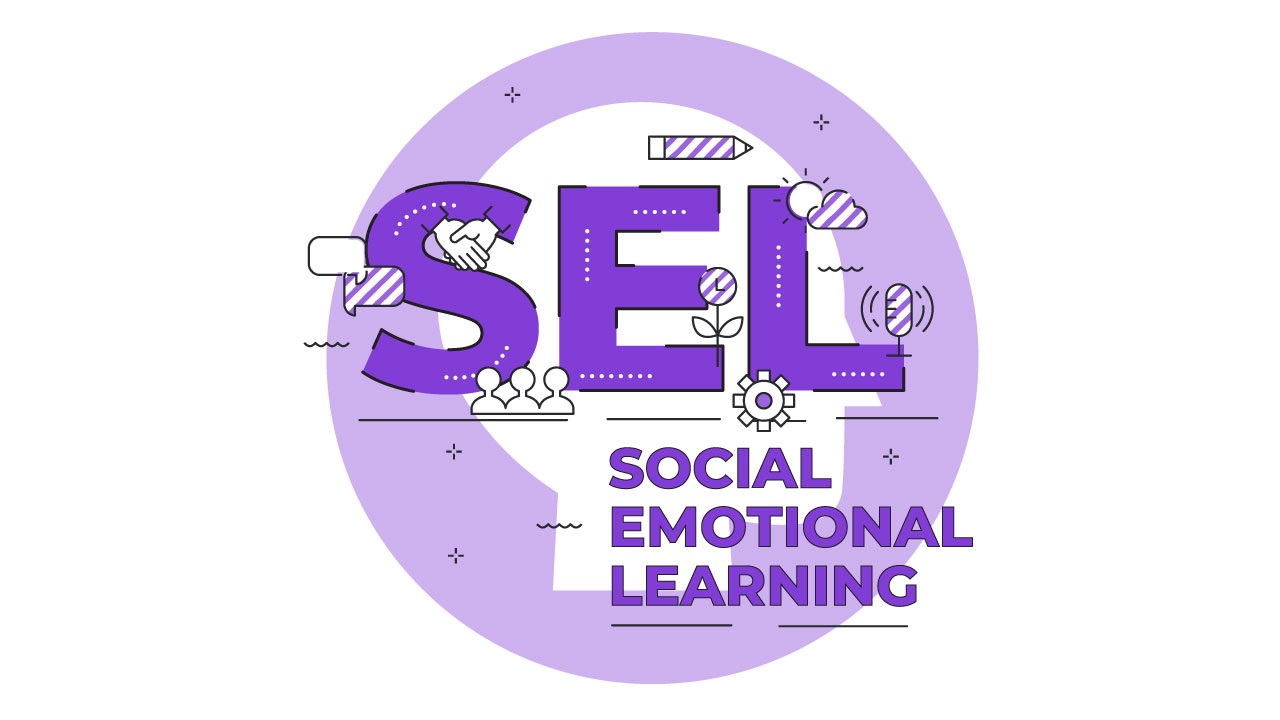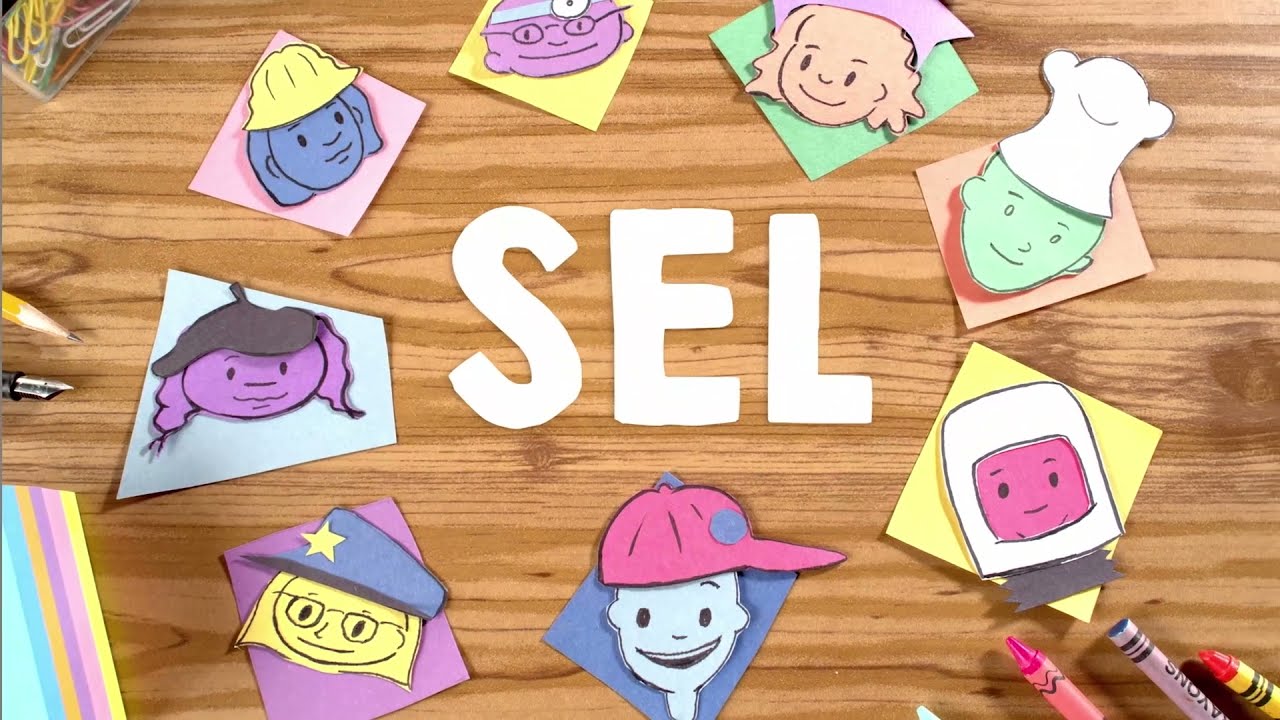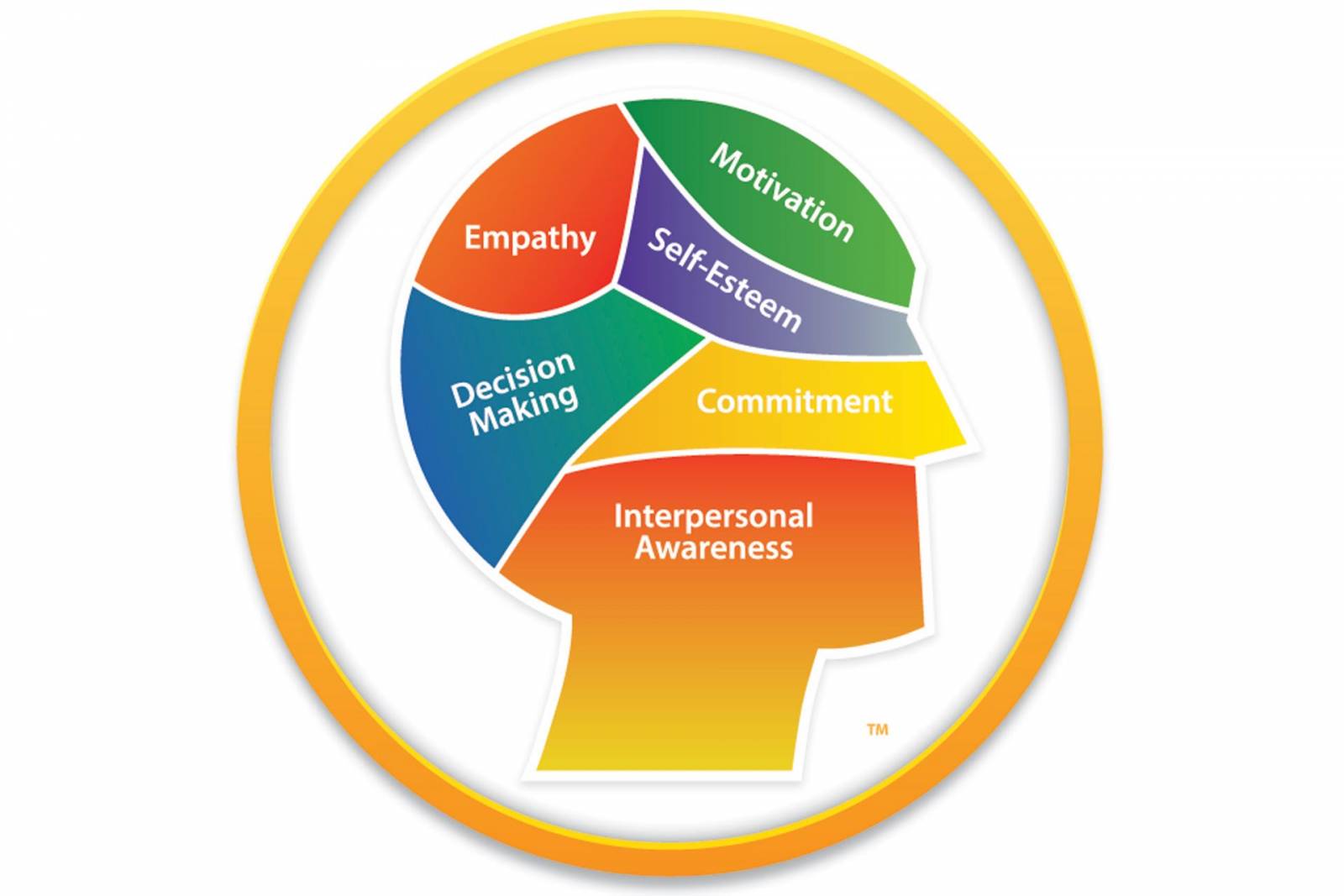In a rapidly evolving world, education is not limited to just imparting academic knowledge; it also plays a pivotal role in nurturing essential life skills. One such critical facet of education is Social-Emotional Learning (SEL). SEL is a multifaceted framework that focuses on developing emotional intelligence, interpersonal skills, and a profound understanding of one’s own emotions. In this article, VTJ will discuss the answer to “What is social-emotional learning?”, delving into its importance in shaping well-rounded individuals.
>>>Read more: How to Foster a Growth Mindset in the Classroom: A Teacher’s Guide
>>>Read more: Lesson Objectives (Learning Objectives): How to Write in 4 Steps
What is Social Emotional Learning (SEL)?

What is Social Emotional Learning (SEL)?
Social Emotional Learning (SEL) refers to the process of acquiring and applying knowledge, attitudes, and skills necessary to understand and manage emotions. Additionally, this method helps to set and achieve positive goals, feel and show empathy for others, establish and maintain positive relationships, and make responsible decisions. SEL is an educational approach that focuses on developing the social and emotional competencies of individuals, helping them to navigate and succeed in various aspects of life.
SEL programs typically involve explicit instruction, practice, and reinforcement of skills related to self-awareness, self-management, social awareness, relationship skills, and responsible decision-making. These programs aim to foster positive emotional well-being, enhance interpersonal relationships, and improve academic performance.
>>>Read more: 6 Types of Assessment in Education & How to Use Them
What are the basic social-emotional skills?

What are the basic social-emotional skills?
The basic social-emotional skills encompass a range of abilities that contribute to effective social interactions, emotional well-being, and personal growth. These skills are typically developed through SEL programs and can be applied in various contexts, including personal relationships, school, work, and community settings. Here are some of the fundamental social-emotional skills:
- Self-awareness: The ability to recognize and understand one’s own emotions, strengths, weaknesses, values, and goals.
- Self-management: The capacity to regulate and control one’s emotions, thoughts, and behaviors in different situations. This includes skills such as stress management, impulse control, and goal setting.
- Social awareness: The skill of perceiving and understanding the emotions, needs, and perspectives of others. It involves empathy, perspective-taking, and appreciating diversity.
- Relationship skills: The ability to establish and maintain healthy and positive relationships with others. This includes effective communication, active listening, cooperation, and conflict resolution.
- Responsible decision-making: The capacity to make thoughtful and ethical choices by considering the consequences of one’s actions, evaluating different options, and problem-solving.
>>>Read more: Meaningful Feedback for Students: Importance, Tips and Examples
Why is SEL beneficial for children?
Social Emotional Learning (SEL) is highly beneficial for children as it equips them with essential skills and competencies that contribute to their overall well-being and success in various areas of life. Here are some key reasons why SEL is beneficial for children:
- Improved academic performance: SEL programs have been shown to enhance students’ academic achievement by improving their focus, attention, and ability to manage stress. When children have a strong foundation in social-emotional skills, they are better able to engage in learning, set goals, and persevere through challenges.
- Enhanced emotional well-being: SEL helps children develop a better understanding and management of their emotions. It promotes self-awareness, emotional regulation, and coping strategies, which can reduce stress, anxiety, and depression. Children with strong social-emotional skills are more likely to have positive mental health and a greater sense of overall well-being.
- Positive relationships: SEL fosters the development of healthy and positive relationships with peers, teachers, and family members. Children learn important skills such as empathy, active listening, and conflict resolution, which enable them to communicate effectively, collaborate, and build strong connections with others.
- Improved behavior and decision-making: SEL equips children with the skills to make responsible and ethical decisions. They learn to consider the consequences of their actions, solve problems, and think critically. This leads to better decision-making, reduced impulsive behavior, and increased personal accountability.
>>>Read more: 13 Types of Students in the Classroom and How to Deal with Them
How Do You Incorporate Social Emotional Learning in the Classroom?

How Do You Incorporate Social Emotional Learning in the Classroom?
There are different approaches to implementing SEL. Teachers can encourage students to journal or write about their thoughts and feelings related to SEL lessons. Begin the day by checking in with students to understand how they are feeling. This allows them to express their emotions and sets a positive tone for the day. Additionally, pairing younger students with older or vice versa can facilitate bonding and finding common ground across different age levels.
>>>Read more: What Is Inquiry-Based Learning (IBL)? Types, Benefits & How to Use
Integrating SEL into formal subjects like math, history, or reading is another effective approach. For example, assigning group projects where students collaborate and delegate roles promotes teamwork and cooperation. Role-playing as historical figures helps students understand the motivations behind their actions. Conducting formal interviews with peers to discuss current events encourages empathy and perspective-taking. Teachers can also work with students to set goals for areas where improvement is needed and track their progress. This provides students with measurable ways to showcase their achievements and fosters a sense of accomplishment.
>>>Read more: What is MTSS (Multi-Tiered Systems of Support)?
How can parents support their child with SEL at home?

How can parents support their child with Social Emotional Learning (SEL) at home?
Parents play a crucial role as their child’s first teachers, and their modeling and reinforcement of social-emotional learning (SEL) competencies at home are vital for their child’s development. When families and schools work together in partnership, they can learn from each other and discover what strategies work best for each individual child.
The collaboration between parents and schools is highly important, as stated by Hoffman. For instance, a parent could inform the teacher that practicing meditation or deep breathing helps their child manage emotions at home. They can explore the possibility of integrating this practice into the classroom when needed.
>>Read more: How to Teach Writing Skills to Students Effectively in 8 Simple Steps
Measuring Social-Emotional Learning Learning (SEL) Impact

Measuring Social-Emotional Learning Learning (SEL) Impact
Measuring the impact of social-emotional learning (SEL) is essential to assess its effectiveness and make informed decisions. Here are some ways to measure SEL impact:
- Surveys and questionnaires: Administering surveys or questionnaires to students, parents, and teachers can provide valuable insights into the impact of SEL programs. These assessments can measure changes in social skills, emotional well-being, and behavior.
- Observations and assessments: Observing students’ behavior and interactions in various settings can help gauge their social and emotional development. Teachers and parents can use rubrics or checklists to assess specific SEL skills and track progress over time.
- Self-assessment and reflection: Encouraging students to reflect on their own social and emotional growth can be a powerful tool. Self-assessment activities, such as journaling or goal-setting, allow students to evaluate their strengths, areas for improvement, and personal growth.
- Qualitative feedback: Collecting qualitative feedback from students, parents, and teachers through interviews or focus groups can provide a deeper understanding of the impact of SEL. These insights can capture personal experiences, anecdotes, and perceptions of the program’s effectiveness.
>>>Read more: 5 Types of Teaching Styles (Their Pros & Cons)
>>>Read more: What is Experiential Learning? How Does It Work?
Social-emotional learning (SEL) is a vital component of a child’s education and overall well-being. It equips students with essential skills to navigate their emotions, build positive relationships, and make responsible decisions. SEL not only enhances academic success but also prepares children for success in life by fostering empathy, resilience, and self-awareness. By prioritizing SEL in schools and at home, we can create a nurturing environment where children thrive emotionally, socially, and academically.
FAQs
What does SEL look like in the classroom?
SEL in the classroom is characterized by a positive and inclusive learning environment where students are taught skills related to self-awareness, self-regulation, empathy, and effective communication.
How can teachers support social and emotional development?
Teachers can support social and emotional development by fostering a safe and supportive classroom atmosphere, modeling appropriate behaviors, teaching conflict resolution and problem-solving skills, and integrating SEL concepts into their curriculum.
What are the four elements of SEL?
The four core elements of SEL are: Self-Awareness, Self-Management, Social Awareness, Relationship Skills
What are the three practices of SEL?
The three key practices of SEL include: Promotion of Social and Emotional Competencies, Integration into Academic Instruction, Creation of a Positive School and Classroom Climate.
🌟 Are you facing difficulties in finding and securing teaching positions in Vietnam? Are visa procedures causing you trouble? Feeling overwhelmed and directionless upon your arrival in Vietnam for teaching assignments? Don’t worry, VTJ’s English Teaching Placement in Vietnam (EPIV) Program 2024 provides comprehensive support to solve ALL the matters.
👉👉👉 Click HERE to request free consultation.



